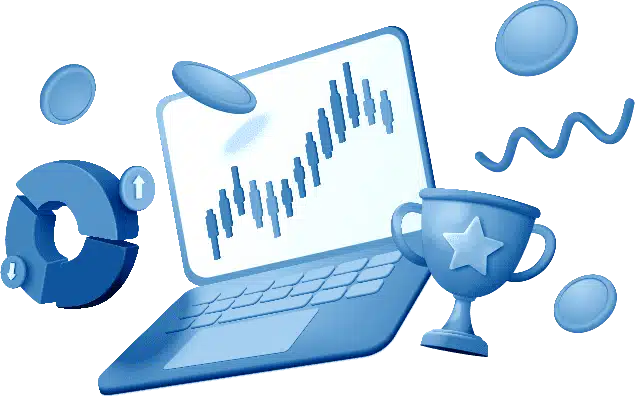The Beginner’s Guide to Online Success

Nobody will ever promise you success in online trading, and if they do: be wary! What WE’LL promise you is one of the most fascinating adventures that’s possible without leaving the seat of your desk. NOTHING beats financial trading for adventure, passion and sheer involvement. It’s also a wonderful training ground for honing your self-awareness, gaining a better understanding of the human animal and learning more about the world about you than you ever bargained for. And if you succeed in doing all THAT – yes, you do stand an excellent chance of making some money!
Your Broker, Yourself
Obviously, since so much is tied up in him(/her) your first major decision in online trading is where to open an account. Some will say that the leading decision should be spreads and trading conditions, others will say that support is paramount. Where will they teach you what to do and hold your hand as you start doing it? Obviously, you may have to trade off one against the other; but whatever you do, make sure you’re trading with an industry leader– one whose financial solvency can never be called into question. Better a large player than one that presents itself as a “boutique”.
Demand Supply!
Second – it’s all about supply and demand. When demand goes up, the asset gets more valuable, when there’s too much supply and not enough demand, the value goes down. It’s the same for your broker, the same for whatever asset you’ll be trading. Examine its past behavior, what makes it tick and make sure you’re hedging your bets by playing it safe. Never open a position without a stop-loss, make sure your take-profit/stop-loss ratios are at 2 to 1 when you begin, greater the surer you become (the old win big, lose small formula). Once you’ve opened a trade MONITOR IT! Automated processes are only as good as the person riding the brakes.
Although you may begin by concentrating on a single asset, learning its ups and downs before you spend a penny on it, soon you’ll have a portfolio of investment open – long term and short, investments and hedges. Diversify to minimize risk, but be careful not to be hedging with similar products. Do your homework. And NEVER LOSE! An unsuccessful investment is not a failure. You only lost some money. If you’ve kept your journal and can access the timeline of that investment, examine it. Look for where the market and expectations diverged. It’s a lesson more valuable than your lost coupla greenbacks. Private lessons from an expert go for $100 an hour! Make sure you’re not being scammed: if there’s a spread, there shouldn’t be a commission. Would you change your hard-earned cash when traveling abroad at a money changer who leaves you in hand with less than you deserve? Same here. Read the small print and know what you’re getting into.
To Demo or Not to Demo
Finally, a word about demo accounts (paper trading, as it’s sometimes called). Most responsible brokers will provide their clients with a demo account. Some may be limited in time, some not. Their importance is twofold: when you’re beginning, they’re an excellent learning tool. The more you practice, the quicker you begin to recognize patterns and the less hesitant you are about exploring new tools. When you’re an experienced trader, demo accounts are best used to test trading strategies before implementing them.
Some detractors, however, claim that too much of a good thing generates dangerous habits. Trading without the risk of losing actual money makes one careless; losses are ignored since they do not entail any real loss, but more importantly, dismissal means that these losses are then not examined and analyzed – a learning experience lost! Then, when moving into a live account, one continues in an irresponsible manner or else goes to the other extreme and becomes overly cautious – thus missing out on opportunities.
The best solution is to treat your demo account as if it were real! Convince yourself that wins and losses are important data! And get used to trading without letting emotion overtake your logic. Afterwards, when you move into a live account, do this gradually – start small, so that you won’t see a loss as the end of the world and a win as no more than a confirmation of your strategy. When selecting a broker, check carefully to see that the data generated on a demo account is not delayed but identical to the values presented in a live platform.
Open your trading account at AvaTrade or try our risk-free demo account!


















